By Keolanani Kinghorn
After 25 long years Wagner‘s The Flying Dutchman has returned to Utah Opera, and trust me, you do not want to miss this. Being performed at Salt Lake City’s beautiful Capitol Theater, Wagner’s The Flying Dutchman was originally set for the 2020 Opera season before the pandemic hit, so many fans have been eagerly awaiting The Flying Dutchman’s return and for good reason. The Flying Dutchman is an exciting opera with gorgeous, exhilarating orchestration that moves expertly between slow and quick movements. The overture alone is stunning. The complex harmonies for the leads and the orchestra that create dramatic moments for the singers is magnificent. Of course, the powerful chorus pieces, especially those of the choir of sailors, are wonderful to experience.
The story follows a legendary ghost ship, the Flying Dutchman, and the cursed sea captain within (Michael Chioldi) who is only able to come ashore once every seven years. He must find true love to break the spell that doomed him to sail the seas for all eternity. But when he finally meets the woman who could change his fate, will he allow himself to trust her?
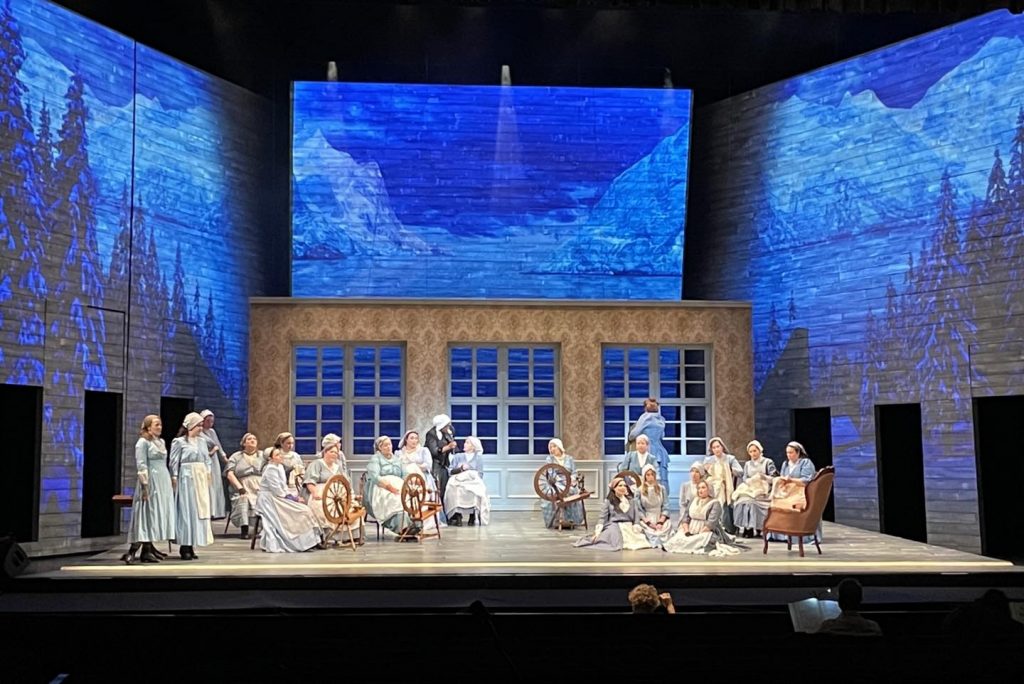
Returning by popular demand are Chioldi—one of the most sought-out Verdi dramatic baritones of his generation—as the Dutchman. Metropolitan Opera regular Wendy Bryn Harmer plays Senta, his long-awaited sweetheart. Kristinn Sigmundsonn is Senta’s father, whose biggest concern seems to be money. Robert Stahley is Erik, Senta’s devoted lover onshore, who can’t seem to keep Senta interested. Tichina Vaughn is Mary, Senta’s nurse. Dominic Armstrong is Daland’s cheerful steersman.
The Flying Dutchman opens to a gorgeous wooden infinity wall, with moving projections of waves crashing over rocks, giving the impression of the sea in motion—marvelous projection design by Ian Wallace. Suddenly, the projections work their magic and show a massive ship entering the stage in a red cloud. Lighting design played a huge role in the effect of the Dutchman, thanks to Lighting Designer Ben Rawson.
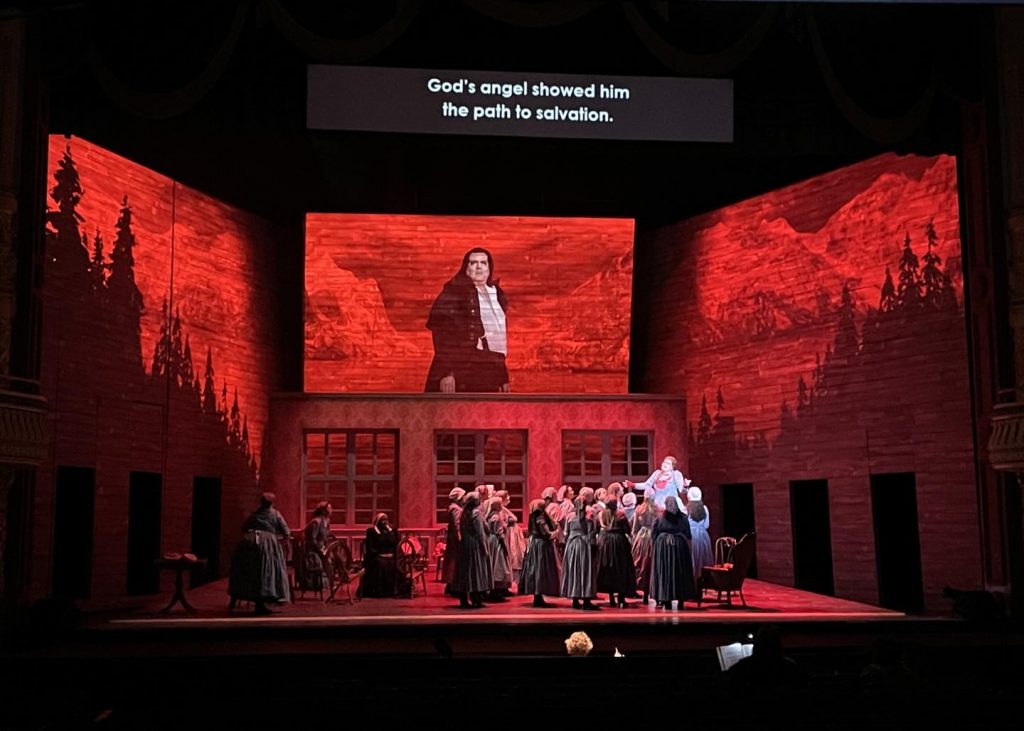
The Dutchman enters wearing all black and distinct black makeup (Wig and Makeup design by Shannon Hutchins), which echoes his despair. Chioldi sings a haunting aria about his curse that ends with the words, “Annihilate me! Grant me oblivion!” Behind the Dutchman, black ghosts eerily move about. We can’t see their faces, only the Dutchman’s.
The Flying Dutchman had me on the edge of my seat all three acts, and I did not see the ending coming. It was delightful. I highly recommend joining the pre-opera chat with Utah Opera Principal Coach Dr. Carol Anderson to learn more about the production. This informative and interesting chat starts one hour before the opera begins. It is very enlightening and added to my enjoyment of the experience.
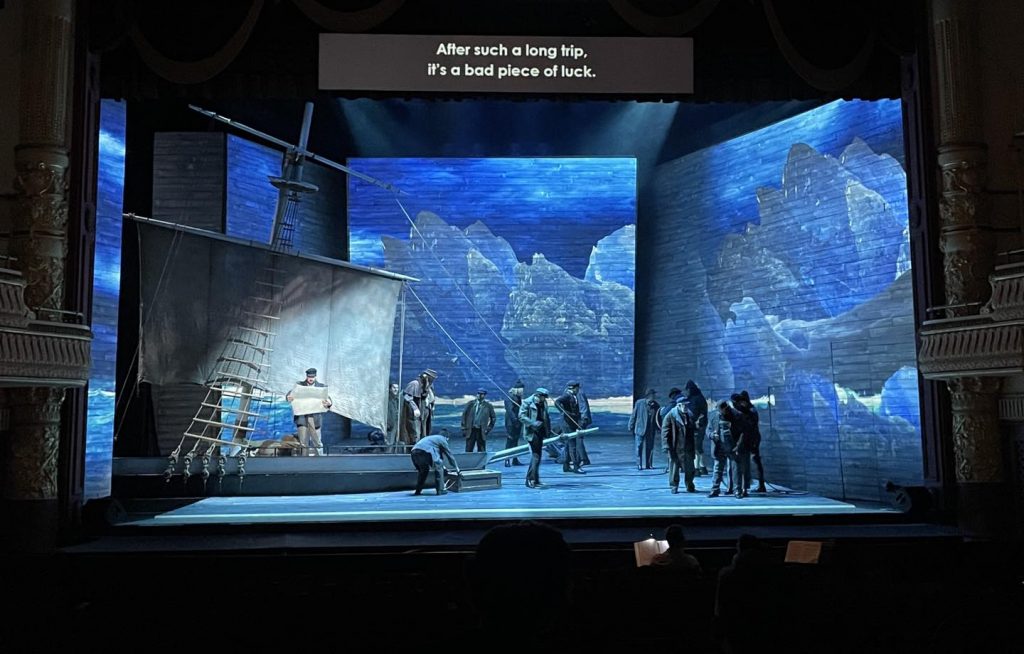
Wagner is unique from other operas composer because he was not afraid to incorporate big emotions into his librettos and he let his life experiences influence his work. According to Michael Clive, Wagner and his wife, “Minna became fugitives, booking passage with an unscrupulous sea captain who was willing to take them on without papers. Their voyage must have been an unmitigated horror of rough seas and onboard privation, but Wagner found inspiration in the experience.” (“The Flying Dutchman: Richard Wagner in Search of Himself”).
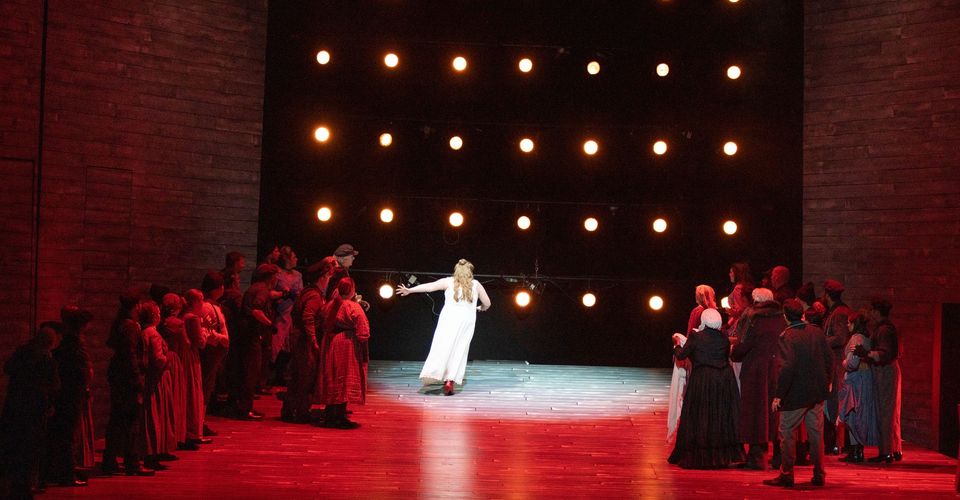
Wagner was known for a concept called “Gesamtkunstwerk,” which translates to total artwork/work of art. This means that Wagner wrote everything himself, the libretto and the music. Every element was purposely created to add to a larger piece. Even the leitmotifs (short recurring themes) match each character and repeat often. For example, the Dutchman theme, Senta’s redemption theme, and the chaotic ocean themes in the orchestration bring a sense of familiarity to such an exciting piece. Wagner was only 27 when he wrote this opera. While it is beautiful, it can be challenging to vocalists, though you wouldn’t know that listening to this cast. Chioldi and Harmer are flawless. As one of his early works in his career, Wagner had not yet learned the limits of singers. It’s even more stunning when these remarkable vocalists do the opera justice. So much talent on one stage.
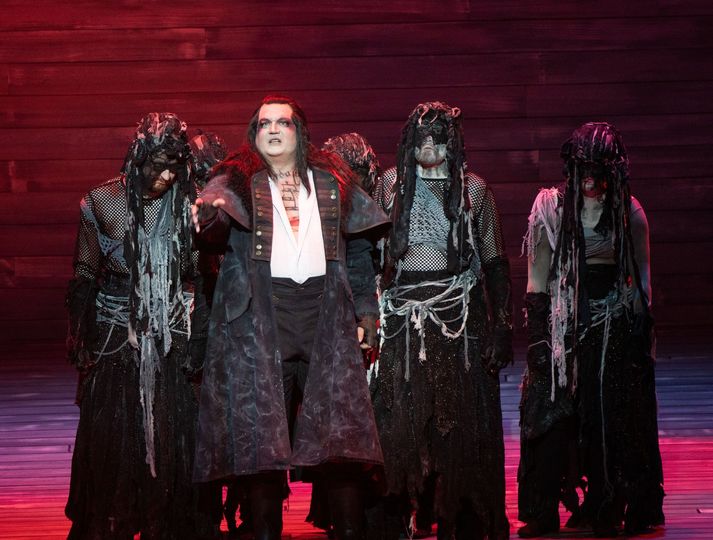
Conductor Ari Pelto leads The Utah Symphony, Andreas Hager directed, Melanie Malinka is the Chorus Master, Colter Schoenfish Assistant Directed, and Samuel McCoy is the Cover Conductor. A show like this takes a big team to keep everything running smoothly, including Stage Manager Rachel C. Henneberry, Assistant Stage Managers Hope Griffin and Ben Kulwanoski, Supertitle musician Laura Bleakley, Principle coach Carol Anderson, and Guest coach Willem Van Schalkwyk. Production originally designed and created by Opera San Jose. The Flying Dutchman costumes were built by The Glimmerglass Festival Costume Shop for the 2013 Festival Season.
Wagner’s name is synonymous with opera—and his stormy, haunting, and poetic tale dives into the depths, asking whether love can bring redemption. This is the perfect Halloween show to get you in the mood to be spooked.
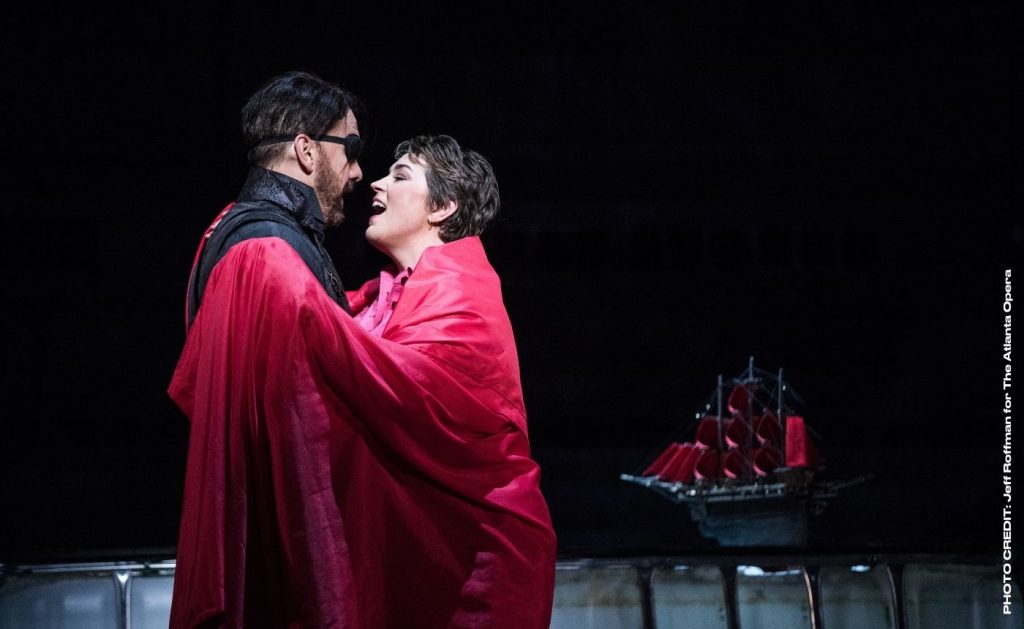
The Flying Dutchman is sung in German with English supertitles. Please note: performances include strobe lights and fog. Individuals ages five and older are welcome at this performance. Parents should ensure their children are able to sit quietly through the performance without disturbing others around them. No babes in arms will be admitted. Production is 3:10 hours with two intermissions.
Utah Opera presents The Flying Dutchman, by Richard Wagner.
Janet Quinney Lawson Capitol Theatre, 50 W 200 S, Salt Lake City, UT 84101
October 8-16, 2022 7:00 PM, Sunday matinee 2:00 PM
Tickets: $30-$110 ($15 for Students and Under 30 with ID) You can purchase tickets for Utah Symphony events online, at USUO Patron Services, and through ArtTix. They offer some discounted subscriber, family, group, and student/youth tickets.
Contact: 801-533-NOTE (6683)
Utah Opera Facebook Page
Preview Salt Lake City’s Capitol Theater, Utah Opera’s Wagner’s The Flying Dutchman
Another Preview from KSL
Information about The Flying Dutchman
Information about Wagner and his operas
Information about German Romanticism and Wagner

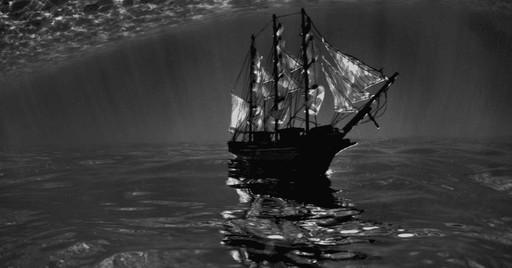
0 Comments